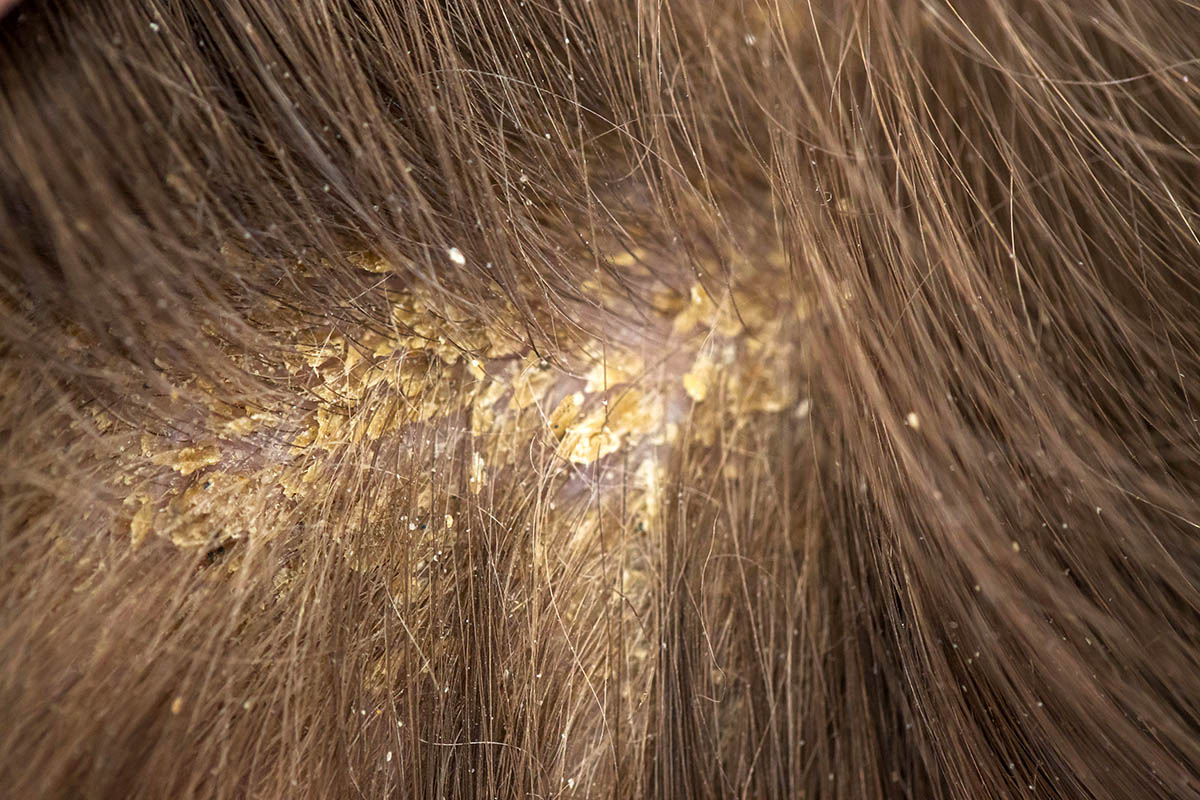Treating Flaky Scalp—Everything You Need to Know
**
Explore what causes flaky scalp and get expert tips and advice on how to deal with this unfavourable situation at hand.
**

1. What is a flaky scalp?
2. Causes of flaky scalp
3. Symptoms of flaky scalp
4. How to treat a flaky scalp?
5. Find the right hair products
6. Lifestyle changes
7. When to see a doctor?
We often rely on hair styling products and heat styling appliances to fulfill our desire to sport sleek, straight hair or soft, free-flowing curls. The importance of having clean hair is often downplayed since the onus is mostly on how your hair looks than how it feels. However, using heat styling tools frequently comes at a price. Your hair may look great but with the heat removing your hair’s natural moisture, and the residue left behind; it becomes a breeding ground for one of the most dreaded hair problems—flaky scalp!
The flaky scalp is quite the troublemaker since it gives rise to a lot of hair care woes. You are left wondering if the shower of white flakes is a sign of a dry scalp or worse, dandruff. However, flaky scalp is quite permanent. Understanding how to treat dry flaky scalp is no rocket science, and we’ll tell you how to combat this problem. But first, let’s find out what exactly is a flaky scalp.
What is a flaky scalp?
Shedding of skin cells from your scalp or the skin in any part of your body is a part of the regular lifecycle. Plus, this shedding is not visible as it disappears into thin air. However, the trouble starts brewing when you notice visible white flakes nestled in your hair fibre, and on your shoulders. And even a subtle shaking of your head brings a downpour of white flakes. What’s worse is that this flaky scalp is accompanied by constant itching, which is perhaps the most uncomfortable side-effect ever.
Causes of flaky scalp
Understanding the causes of flaky scalp will give you the right diagnosis and make it easier to find the right treatment option. Here are the major causes of flaky scalp:
-
Dry scalp:
Our skin is categorised as normal, dry, oily, sensitive, and combination. And dry skin is one of the prime reasons for flaky scalp. Dry scalp occurs when your skin loses its ability to retain or produce moisture to keep the scalp hydrated and nourished. This causes the skin on your scalp to become dry and crack, causing white flakes to appear.
-
Dandruff:
The dreaded dandruff is characterised by the presence of flakes that are larger and oilier than the flakes caused by a dry scalp. Dandruff occurs when the yeast Malassezia globosa that resides on the scalp breaks down the sebum and natural oils to produce oleic acid. Usually, this by-product is not a cause of concern, but some scalps react to it. That’s how dandruff is triggered.
-
Reaction to hair products:
What works for one person might not be suitable for another. Similarly, hair care products that are harmless for some people can trigger an allergic reaction in others. And certain personal care products can cause contact dermatitis that can make your scalp red and itchy.
-
Not shampooing enough:
Though shampooing your hair frequently can make your scalp dry, not shampooing enough can cause flaky scalp condition because it causes the cells to accumulate and create flakes, which trigger itching.
Symptoms of flaky scalp
Whenever you get the opportunity, try nipping in the bud the following symptoms of flaky scalp:
- Incessant itching of the scalp
- Redness
- Dry, tight scalp
- *Hair loss (caused by dandruff)
How to treat a flaky scalp?
Treating a flaky scalp depends largely on finding its underlying cause. Moreover, you need the right hair care products to go flake-free and usher in the joy of sporting clean, gorgeous hair. Let’s learn how to treat flaky scalp, gently.
Find the right hair products
-
If you have successfully identified dry scalp as the culprit here, you’ll need a shampoo that can get rid of the pesky flakes but at the same time, is gentle to your tresses. Try Head & Shoulders Dry Scalp Care Shampoo that gives you flake-free hair. The dual-action formula with almond oil relieves dry scalp and itch while providing extra conditioning to your hair. You will notice an improvement in scalp health in 2 weeks with regular use.
-
Another shampoo that gives you flake-free hair and leaves your hair smelling fresh is Head & Shoulders Apple Fresh. Infused with the fragrance of a fresh green apple, this shampoo cleanses your hair and scalp, and is gentle enough for daily use. It works wonders for colour or chemically treated hair and maintains the pH balance of your tresses.
-
If the flaky scalp condition is caused by dandruff, you need a hair product that combats it. Enter Head & Shoulders Clinically Proven Solution Scalp Relief Shampoo. This selenium sulphide shampoo targets severe dandruff and is clinically proven to control itching and flaking. Perfect for daily use, the gentle moisturisers in this shampoo leave you with great-smelling, healthy-looking hair.
Lifestyle changes
-
Shampooing rarely or too often can cause flaky scalp. Create a hair-washing schedule that ensures that you wash your hair just enough to keep it clean.
-
Stay hydrated. Dry skin is one of the major causes of flaky scalp, and you can keep it at bay by staying hydrated. You should drink enough water to replace the moisture your skin loses.
-
A healthy diet is the secret to a healthy scalp. Refrain from consuming oily food. Instead, replace the junk food with healthier options. Foods rich in biotin and zinc play a vital role in supporting hair health.
When to see a doctor?
If a dry scalp or anti-dandruff shampoo does not give respite, and your scalp keeps shedding white flakes, it’s advisable to consult a dermatologist. If the itching gets worse and you give in to the urge, it can cause red patches across the scalp. A dermatologist is better equipped to help you in such cases.
Flaky scalp can give rise to many undesirable situations and cause a great deal of discomfort, which is why it must be dealt with right away. Create a hair care routine that includes the right hair care products. In the end, your hair that feels great looks great!
*All references on this page refers to hair fall or hair loss due to breakage.


